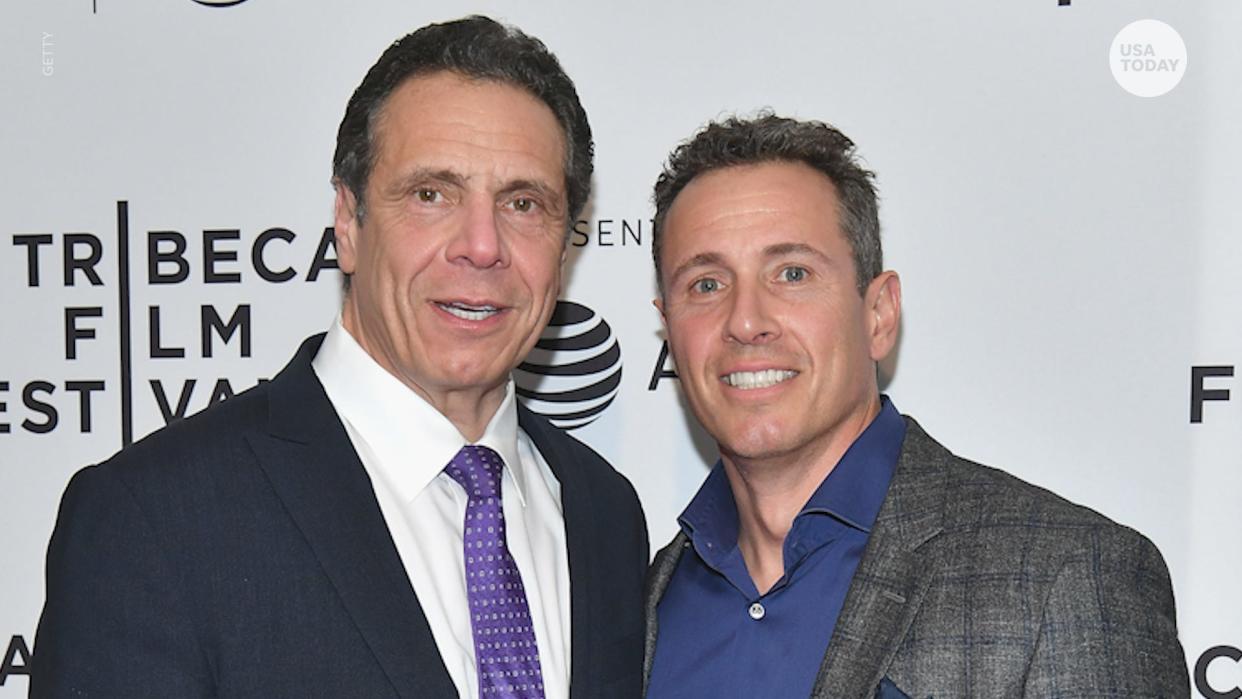Chris Cuomo isn’t first journalist stung by unethical behavior, won’t be last | Cotterell

- Oops!Something went wrong.Please try again later.
- Oops!Something went wrong.Please try again later.
- Oops!Something went wrong.Please try again later.
The ouster of CNN’s Chris Cuomo comes at a bad time for journalism ethics.
Not that there’s ever a good time for a network star to get involved in a major story, to downplay his involvement and then be “suspended indefinitely” when official investigation documents show him ears-deep in PR strategy for a sex-harassment scandal.
The fact that the central figure was Cuomo’s brother, ex-Gov. Andrew Cuomo of New York, makes his concern understandable, but not his actions.
Worse, CNN’s latest embarrassment comes at a time when public trust in the media is lower than it’s been in 50 years. Not since Vice President Spiro Agnew ran around the country ridiculing “nattering nabobs of negativism” and “pusillanimous pussyfooters” at anchor desks and big-city editorial boards have the media taken such a daily drubbing.
We journalists keep doing damage to ourselves
We’ve got ex-President Trump with his “fake news” harangue and Gov. Ron DeSantis telling Floridians the “corporate media” are out to stifle conservatives. Readers and viewers who feel strongly about the Biden administration’s spending policies, the Supreme Court’s abortion cases, COVID policy, and any number of culture-war flash points are going to read bias into any reporting they don’t agree with.
And at the highest level, we keep doing it to ourselves.
The Washington Post returned a Pulitzer several years ago, when it was revealed that a reporter had simply made up a tragic tale. The New York Times published an agonizing investigation of work by Jayson Blair, who’d done pretty much the same. Dan Rather messed up a gotcha hit job on President George W. Bush’s military record.
And now, all the major media are curiously un-curious about Hunter Biden’s past business dealings and blossoming fine arts career.
The CNN mess sparked much discussion on journalism websites among media-ethics writers. At first, Chris Cuomo tried to pass off his interference as family-first — wouldn’t you help your brother? — but last week, the New York attorney general released emails and investigative reports indicating he was intimately involved in the governor’s defense against harassment accusations.
His defenders argued that the younger Cuomo is not a reporter but a TV host, an entertainer and, anyway, he wasn’t covering the governor’s demise. But ethical principles still applied, because he was presenting information on a news network and he decided what topics were discussed each night, which guests were invited on his show.
Evidence indicated Cuomo tried to find dirt on at least one of his brother’s accusers, used news contacts to find out what other reporters were working on and tried to find out if more women were coming forth with allegations.
He had to know better.
On a far smaller scale, every reporter has run into ethical concerns a time or two.
More from Bill Cotterell
When I came to Tallahassee in 1969 with United Press International, I wound up covering all environmental stories because Barbara Frye, the UPI bureau chief, was married to the director of the Game and Freshwater Fish Commission.
That’s an environmental agency, if your definition of conservation extends to protecting animals, birds and fish now so you can hunt them later. But no one thought it odd that Barbara avoided stories about the Cross-Florida Barge Canal or the Everglades Jetport projects — two projects that were big news at the time.
Later, in Atlanta, my now-wife was a member of the Georgia House. I covered the Senate for UPI. I discussed it with editors and we decided none of her bills were likely to get over to the Senate anyway, so it didn’t become a conflict.
Later, covering state-employment matters for the Tallahassee Democrat, I occasionally handed off a story if we felt the subject could even remotely affect my wife, a state employee. Her job was apolitical and not affected by anything I covered, but we were careful to avoid appearance of conflict.
There will always be accusations of bias or undue influence and, with so many more news sources — social media posts, blogs, journalists interviewing each other in the panel discussions — some perceived conflict is inevitable.
Thankfully, it rarely involves brothers who happen to be a network news host and a governor.
Every situation will be different but maybe the best all-purpose ethics rule is for journalists to back way, far off from any situation they’re not sure of.
Essentially, if you wonder whether there’s an ethical problem, there is.
Bill Cotterell is a retired Tallahassee Democrat Capitol reporter who writes a twice-weekly column. He can be reached at bcotterell@tallahassee.com
JOIN THE CONVERSATION
Send letters to the editor (up to 200 words) or Your Turn columns (about 500 words) to letters@tallahassee.com. Please include your address for verification purposes only, and if you send a Your Turn, also include a photo and 1-2 line bio of yourself. You can also submit anonymous Zing!s at Tallahassee.com/Zing. Submissions are published on a space-available basis. All submissions may be edited for content, clarity and length, and may also be published by any part of the USA TODAY NETWORK.
This article originally appeared on Tallahassee Democrat: Chris Cuomo not first journalist stung by unethical behavior

